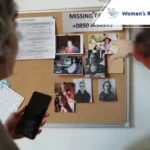Every year, thousands of children in California are removed from their homes and placed into the foster care system, often due to serious concerns about their safety and well-being.
Among the most pressing of these concerns is substance abuse within the household. Substance abuse doesn’t just impact the user; it can create dangerous environments for children, leading to neglect, child abuse, and long-term emotional damage.
For those navigating this complicated terrain, understanding the link between substance abuse and foster care is critical. Let’s break down why this issue is so pervasive—and what families can do about it.
Why Is Substance Abuse So Prevalent in Foster Care Cases?

Substance abuse is a leading cause of foster care placement. Data shows that more than eight million children under age 18 live with at least one adult who has a substance use disorder. That’s more than one in ten children, and most of them are under the age of five. These children are often exposed to dangerous environments and chronic neglect.
Children who grow up in homes affected by the harmful use of alcohol or drugs are at increased risk for:
- Emotional trauma and mental health problems
- Poor school performance and developmental delays
- Behavioral health challenges
- Long-term physical health problems
- Increased risk of becoming involved in juvenile delinquency
The cycle is difficult to break, especially without early intervention and support from child welfare agencies and health and mental health services.
What the Data Tells Us About Youth and Substance Abuse
Substance abuse doesn’t just affect adults. In a study examining youth diagnosed with post-traumatic stress disorder (PTSD) and conduct disorder (CD), researchers identified a significant connection between these conditions and higher rates of both current and lifetime substance use and dependency.
Specifically, conduct disorder was strongly linked to every form of substance use and dependence. This correlation suggests that early exposure to trauma—like family separation, neglect, or child maltreatment can increase the likelihood of a child developing substance abuse issues later in life.
Impact of Substance Abuse on Foster Care Cases
| Impact Area | Effect on Children |
| Home Safety | Increased risk of neglect, injury, and unsafe environment |
| Emotional Wellbeing | PTSD, anxiety, depression |
| Education | Disruptions, poor performance, and limited support |
| Health | Malnutrition, developmental delays, and physical health problems |
| Legal Outcomes | Foster placement, family separation, and court supervision |
How Does This Affect Foster Care Decisions?
When Child Protective Services becomes involved, child protection agencies must weigh the risks in the home. If a foster parent or legal guardian uses substances that impair their ability to care for a child, it can lead to removal from foster care and initiate extensive legal proceedings.
Key legal considerations in these cases include:
- Proof of harm or neglect due to parental substance use
- Urgent removal of the child when immediate danger is present
- Court-mandated rehabilitation for parents before reunification
- Long-term monitoring and visitation restrictions
- Legal representation for parents, children, or concerned family members
In these situations, families often benefit from speaking with a foster care abuse lawyer in Los Angeles to understand their legal rights and advocate for the best possible outcome for the child.
Spotting the Signs of Abuse in Foster Homes
Substance abuse isn’t limited to biological parents. Unfortunately, there are also cases of abuse in foster homes tied to drug or alcohol misuse by foster family members. Recognizing signs of foster care abuse is essential, especially if you’re a relative or close friend monitoring a child’s safety.
Watch for:
- Unexplained injuries or frequent illnesses
- Sudden changes in mood or behavior
- Extreme fear of returning to a particular place
- Reports of drugs or alcohol in the home
- Lack of supervision or basic care
If you suspect child abuse in foster homes, don’t hesitate to report it to child welfare officials. A child’s safety must always come first.
What Can Families Do?
If someone you love is caught in this situation—whether as a parent, legal guardian, or concerned relative—there are ways to take action:
✅ Contact a mental health professional
Early assessment of a child’s mental or behavioral health needs is critical.
✅ Connect with support services
California offers various health and mental health services for families in crisis.
✅ Work with a legal advocate
A qualified foster care abuse lawyer in Los Angeles can help navigate complex legal processes and protect children from further harm.
✅ Get educated on your rights
Understanding your and the child’s rights empowers better decisions and safer outcomes.
Safeguarding Child Well-Being Starts With You
Substance abuse is a driving force behind countless cases in the foster care system, and its ripple effects can last a lifetime. Knowing the signs and acting quickly can protect vulnerable children from further harm, whether you’re a parent, a concerned family member, or a child advocate.
If you suspect foster care abuse or need guidance on how to support a loved one affected by abuse in California foster homes, contact our team today. Our compassionate foster care abuse lawyer in Los Angeles can help you understand your options and fight for the justice every child deserves.
Call us now for a free consultation and let’s protect the future—one child at a time.






